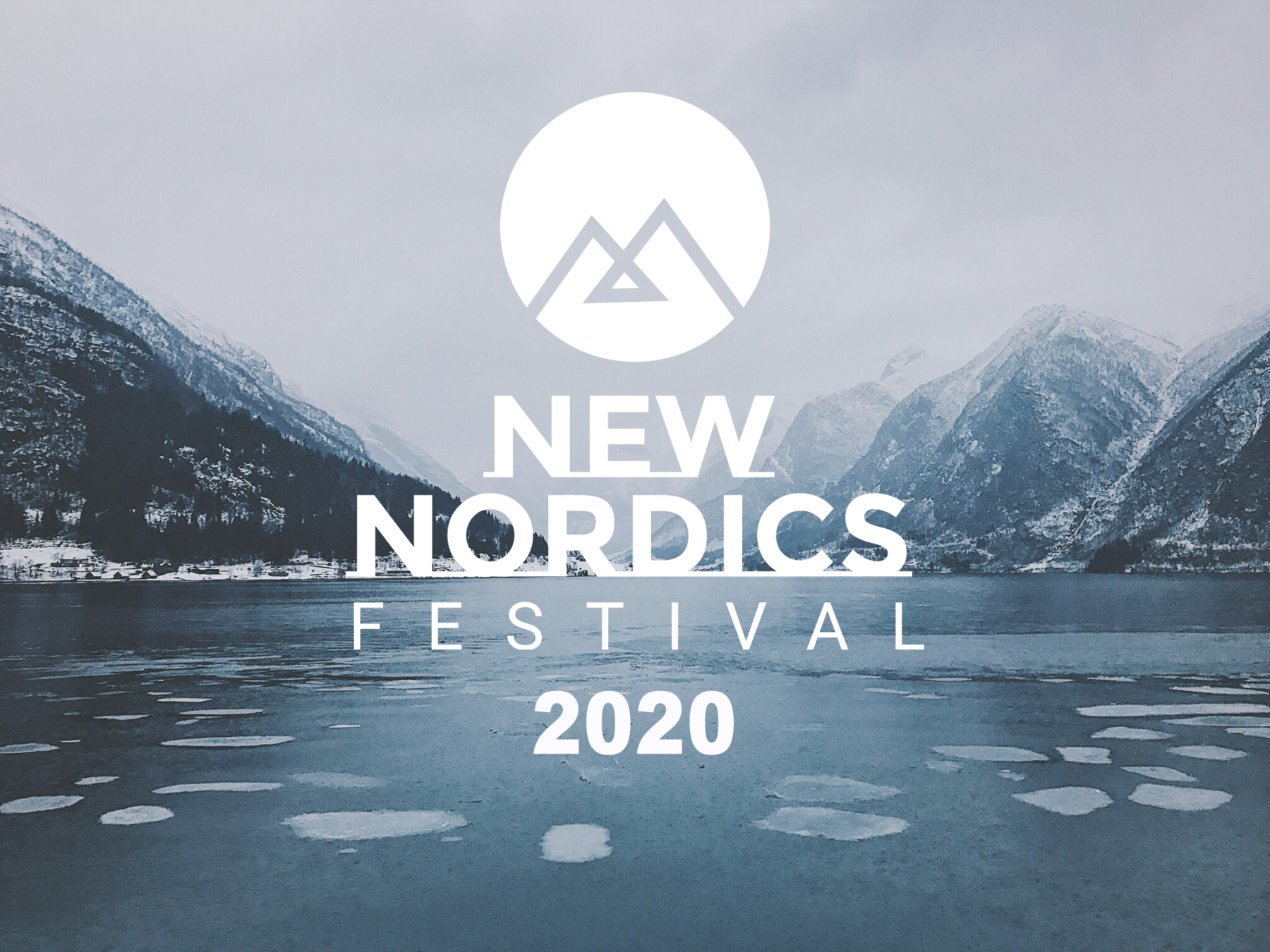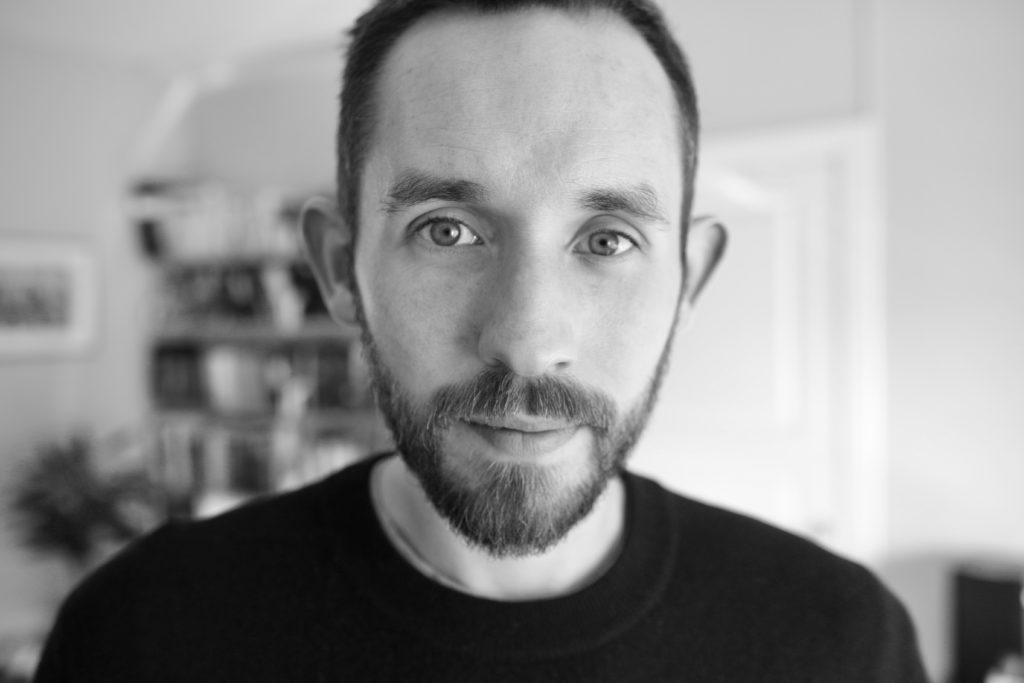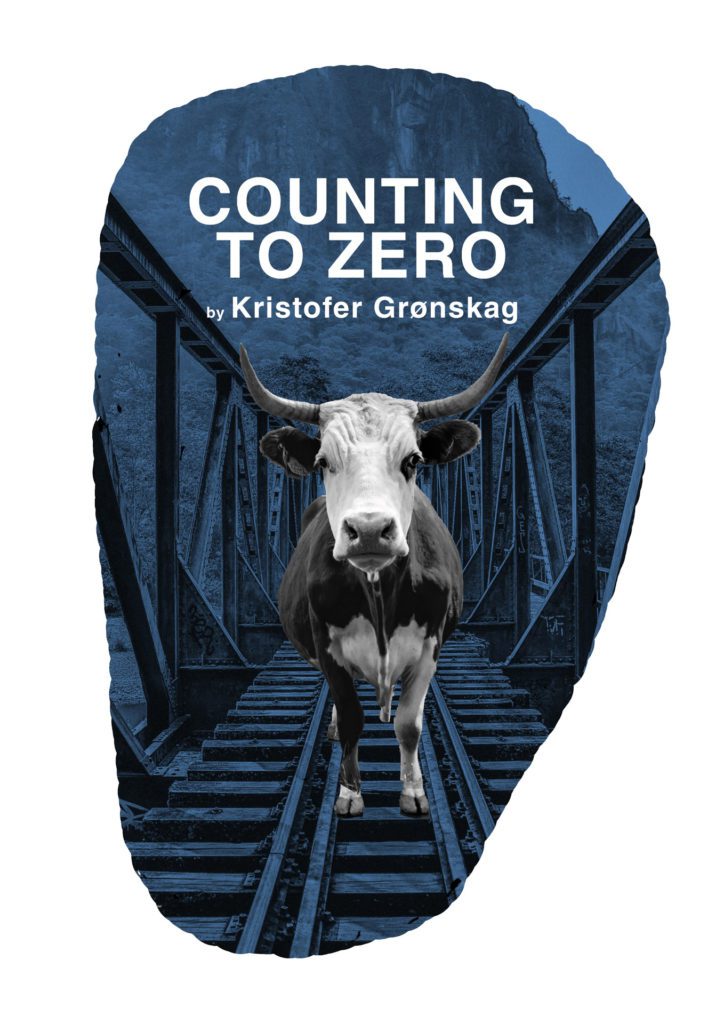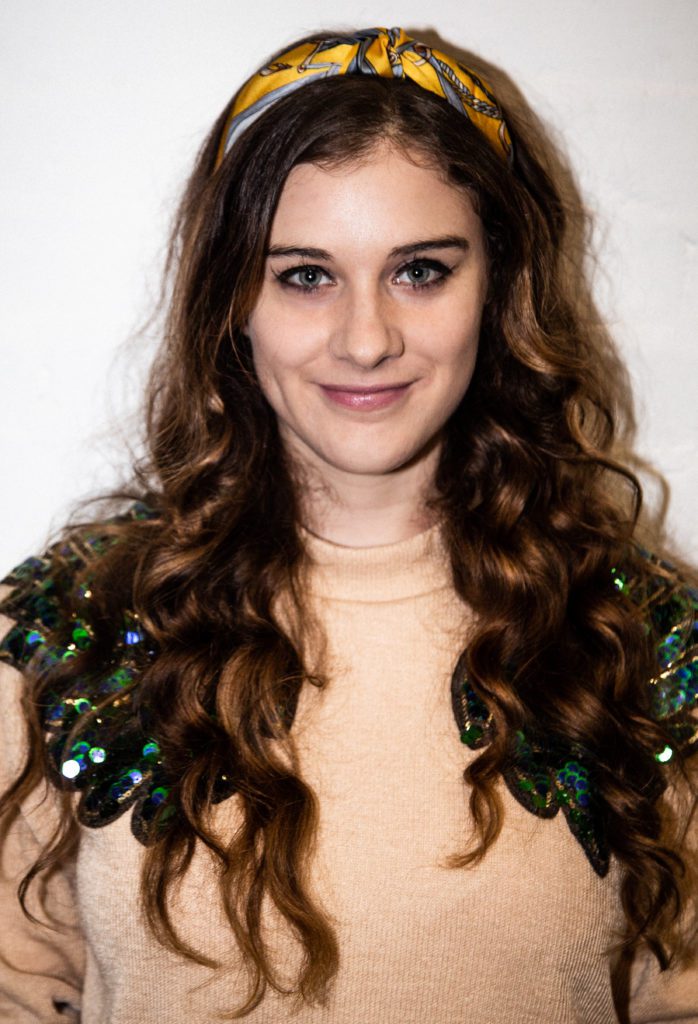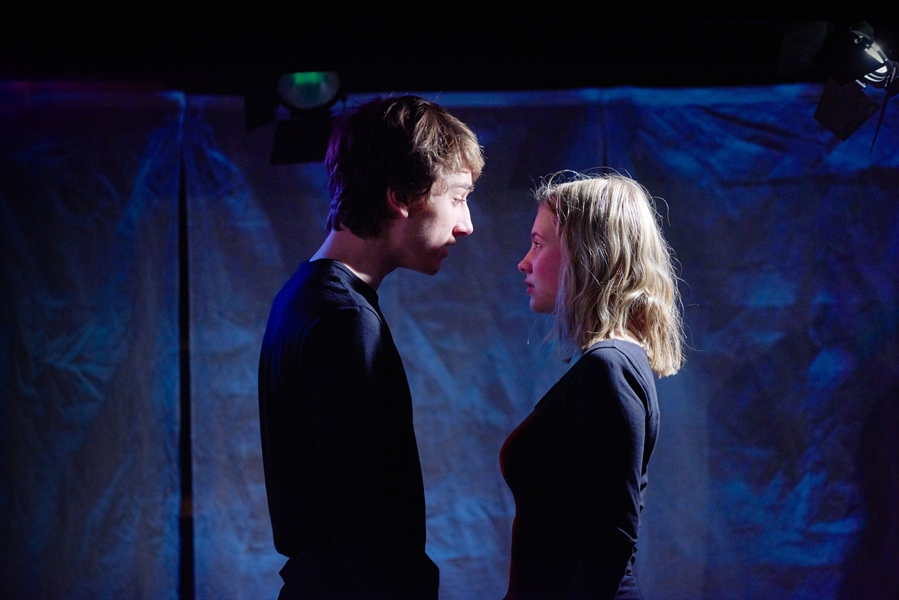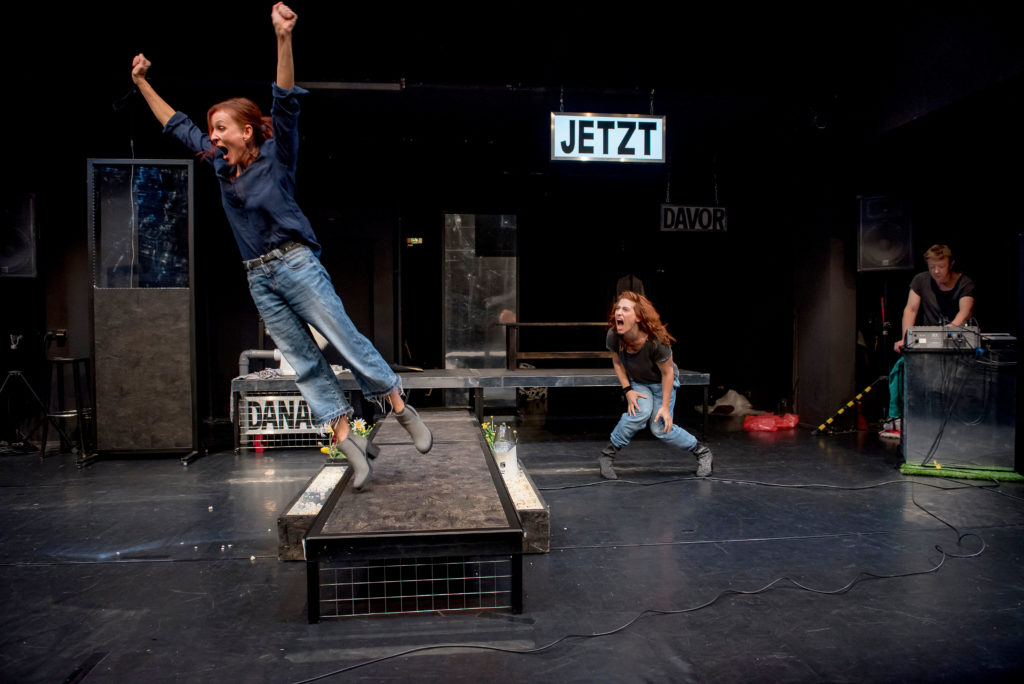Counting to Zero, by Norwegian playwright Kristofer Grønskag, was scheduled to premiere in London in spring 2020 as part of the New Nordics Festival, a showcase of Nordic plays staged by Cut the Cord. Norwegian Arts was curious to talk to the Grønskag and the British theatre director Ellie Chadwick about their collaboration.
The pandemic caused the New Nordics Festival to be rescheduled and instead takes place in mid-October 2021, with Counting to Zero being performed on Thursday 14 October 2021.
Counting to Zero was nominated for the National Ibsen Award 2018 and is pitched as a sequence of funny, exciting vignettes revolving around the need to be seen. And then there is a stalker, a train line and the untimely death of a cow thrown into the mix. The play is constructed as a countdown of scenes between young people, beginning with scene 10 and counting down to zero.
We met up with Grønskag (KG) and Chadwick (EC) to discuss cultural borders, the struggles of the younger generation and how the arts can deal with the coronavirus crisis.
How did you both get involved with the New Nordics Festival?
KG: I know Camilla Gurtler [director of Cut the Cord Theatre] from a couple of years back, when she was director on one of my earlier plays, Kinder K. She visited me in Norway to talk about the play. Since then we have regularly kept in touch, and when I wrote Counting to Zero I really wanted her to read it.
EC: I’ve known Camilla for a while too, as we were both involved in a young directors’ programme and festival several years ago. When I heard about her plan for this incredible new festival promoting Nordic arts and intercultural exchange I immediately thought it sounded very exciting. I have some distant Norwegian ancestry so naturally was drawn to look at the Norwegian play first.
What can you tell us about Counting to Zero?
KG: The play is a mosaic of small scenes that becomes something whole at the end of the play. I had always wanted to write a bomb, and with Counting to Zero I pursued this idea. The play is constructed as a countdown of scenes. What connects them is the feeling of wanting to make an impression, getting fed up, or just searching for their place in the whole. I always search for something sincere, something over the top and something moving and dark and funny at the same time.
EC: When I first read Counting to Zero I was struck by how quickly and effectively the writing hooks you in to each situation and each character’s journey. The play jumps around between different places and people but all connects in an intricate way and has an emotional pull at its heart.
Ellie, you travelled to Norway earlier this year to meet Kristofer. What was that experience like – for both of you?
EC: I learned so much in those few days. I visited lots of theatre venues, had so many interesting conversations with artists, producers and agents, and absorbed as much as I could about Nordic theatre. I even visited the painting of my ancestor Ingolf Schanche, which hangs in the National Theatre in Olso. [Ingolf was an actor and director in the early 1900s in Norway].
I found it particularly inspiring to observe how regional theatre of incredible quality is being made in Haugesund, and to talk with Kristofer, artistic director Morten [Morten Joachim Henriksen], and the ensemble of Haugesund Teater about their process and approaches.
KG: It was so nice to have Ellie visiting me in Norway in the quite small town of Haugesund where I live. Every time you talk about Norwegian theatre with people from other countries, you get quite aware of how you define theatre in Norway. Are there any tendencies? What kind of plays do we stage? How do we stage them? It was also rewarding to hear Ellie’s thoughts about theatre in the UK, and the other places where she has worked. And it was a joy sharing food together.
What are the pros and cons of working with two languages and cultures in this way?
KG: The pros are that you include the perspective of a different culture and mindset. Different people from different places always bring to the table different things in meeting the text. The cons are perhaps some things that happen in the translation process. Some things are impossible to translate in a way that conveys small unique things in the text inherent in the original language.
EC: I am a strong believer in intercultural exchange as a powerful source of inspiration for exploring human connection more deeply, which is arguably the unifying theme of all theatre performance. Learning about and sharing perspectives is part of our job as storytellers anyway, and so to do so across cultures is a wonderful exercise in doing so effectively, humbly, and sensitively.
Ellie, have you been able to merge your interests in technology and humanitarianism into your staging of Counting to Zero?
EC: As Counting to Zero is being staged as a rehearsed reading for the New Nordics Festival, it has had to stay fairly low-tech. Nevertheless, I do think that the sound design is quite integral to supporting the rise and fall of tension throughout the show. In terms of my interests in community and in humanitarian issues, I think this particular play poses some challenging questions to its audience surrounding various important social concerns, including political activism, climate change, ethical consumption, and mental health.
Counting to Zero seems to address what it’s like being young. Do you think young people have more to be worried about today than previous generations, and do you think theatre can reflect this in a unique way?
KG: I don’t know if young people have more to worry about today than previous generations. But I do believe there are other things to worry about, and in different ways. The pace of the world has increased, the internet and screens have done something to us, decades of unethical commercials and depictions of the human body have done something to us. Not all necessarily for the worse. Perhaps is it not our role to moralize, but to include ourselves in the thinking about it and around it. Perhaps to say to young people that we listen, that we are interested in their vision and view on the world.
EC: I completely agree. Every generation has its own difficulties as well as its own achievements, innovations and progress. The current youth grow up surrounded by social media and smartphones and instant-access knowledge via the net which has, and will, undoubtedly affect them differently than those who did not have such a hyper-connected and fast-paced childhood and adolescence. However, we also all share core experiences and core concerns which are part of being human, and which I think resonate particularly strongly throughout the various scenes in Counting to Zero: wanting to feel valued, needing friends, looking for a purpose or greater meaning to one’s existence, craving love and connection.
How do you see the current coronavirus crisis affecting the art industry?
KG: For the arts as a whole, I think the battle will be to survive these months of total lack of audience or the possibility to execute their practices. Both museums and theatres are now trying to readjust to online activity, which is great. But the fact is that the entire core of our practice is to be live, in the same room, to be in this together. I hope as many as possible survive this time of aloneness.
Read more on Counting to Zero and book tickets for the performance on Thursday 14 October here.
Grønskag’s previous play Kinder K was featured in The Oberon Anthology of Contemporary Norwegian Plays (Oberon Books)

